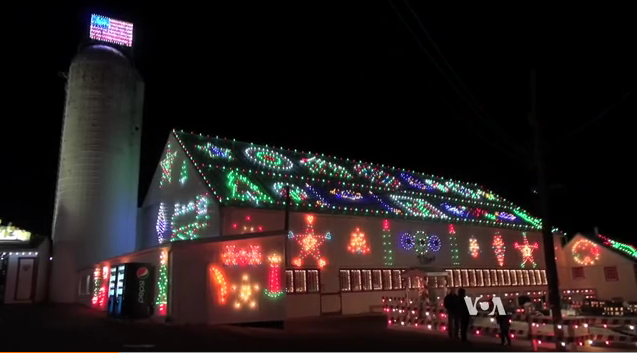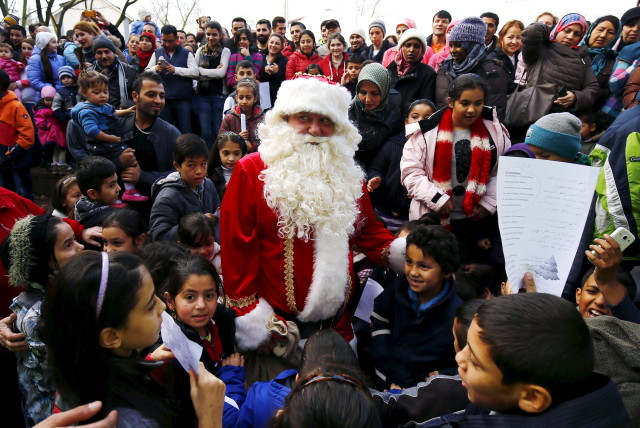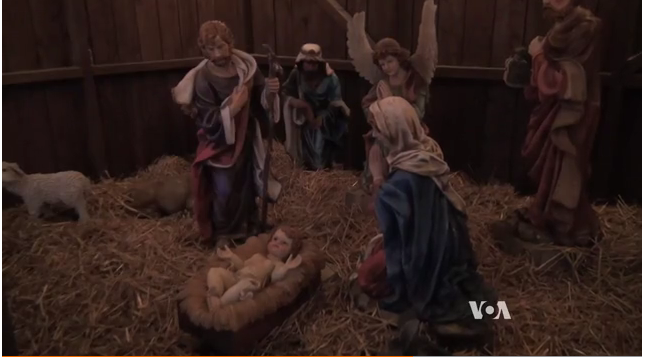It seems a bit incongruous that a country where freedom of religion is among its bedrock foundations celebrates one of Christianity’s holiest of days as a national holiday. But as a cultural, racial and religious melting pot, the United States is a country of contradictions and compromises, and culture clashes over Christmas roil that pot a bit. Despite the separation of church and state, American religion and politics often work hand-in-hand. Even amid accusations of a war on Christmas, most Americans are generally swept up by the spirit of the holiday.
The War on Christmas
Jonah Goldberg – National Review
Of course, the Left has always loved its metaphorical wars, ever since William James announced the pressing need for the “moral equivalent” of war. President Obama has kept that tradition alive, routinely calling for warlike unity in his effort to pour money down any number of rat holes. But the moment when the tail-chasing dog ate himself came when Obama declared a lexicological war on war, changing the “war on terror” to “overseas contingency operations.” Terrorist attacks became “man-caused disasters,” and American reprisals were euphemized as “kinetic military operations.” It was, to borrow a phrase, a metaphorical war to end all literal wars. We’ll know that battle has been won when we start talking about the Domestic Contingency Operation against Christmas.
More than one million lights transforms a family farm into a Christmas village. The Koziar Christmas Village is located in Bernville, Pennsylvania (VOA/Deborah Block)
War on cancer? Worth fighting. War on science? Mostly a bogus PR campaign to bully conservatives into silence. But the war on Christmas represents a special kind of passive-aggressive jackassery because the aggressors deny they have declared a war. They simply take offense at Christmas cheer. They cancel Christmas pageants. They leave baby Jesus in a cardboard box in the church basement, but see nothing wrong with celebrating the Winter Solstice as if that’s a more rational thing to do. And then, when people complain about this undeclared war on Christmas, the aggressors mock and ridicule them for paranoia and hyperbole.
The Right’s War Against the Spirit of Christmas
Harold Meyerson – The Washington Post
They were refugees, fleeing for their lives from one Middle Eastern country to the next. As Matthew tells the tale, Joseph, fearing that the government had marked his newborn son for death, gathered up his wife and child and stole away by night across the Judean border into Egypt. …
Migrant children surround a volunteer dressed as Father Christmas during a Christmas gathering organized by local relief organization “Die Johanniter” at the refugee camp in Hanau, Germany, December 24, 2015. (REUTERS)
This isn’t a chapter of the Christmas story that has made it into the general celebration, but it’s there in the gospel, for those who give the gospels credence and for those who don’t. For both groups, it’s clear that the authors of the New Testament intended to recount (for the believers) or compose (for the nons) a story that echoed the Old Testament’s concern for strangers, foreigners and refugees (“The stranger among you shall be as one born among you,” says Leviticus, “and you shall love him as yourself”), that foreshadowed Jesus’ teachings to care for castaways and the least among us, and that laid the foundation for institutional Christianity’s transnationalism.
Which is, perhaps, a long way of asking the question: Who’s really waging a war against Christmas in 2015? Secular multiculturalists … [o]r the self-proclaimed culture warriors on behalf of traditional values …
This Town Removed Its Creche, but Residents had Other Plans
Steven L. Carter – Bloomberg View
With Christmas almost here, the news is full of the usualdesultorystories about lawsuits demanding that one town or another take down its Nativity scene. …
Nativity scene from the Koziar Christmas Village in Bernville, Pennsylvania (VOA/Deborah Block)
But this year in the rural Minnesota town of Wadena — population 4,133 — something is different. In November, following a complaint from the Freedom From Religion Foundation, the town council voted to take down a creche that has been displayed on city land during the Christmas season “as long as anyone in Wadena can remember.” The mayor, George Deiss, defended the display as “a tradition to the city” rather than a religious message. The council, however, was unanimous.
At that point, usually, the controversy fades away. In Wadena, however, something unusual happened. A Facebook page was established to encourage residents to set up their own Nativity scenes on their own property. And they did. On lawns. In shop windows. Outside privately owned buildings. … In fact, by some estimates the little town of Wadena now has more Nativity scenes than residents.
A Christmas Story – American Style
Thomas V. DiBacco – The Washington Times
Christmas did not become a recognized federal holiday until 1870 — and then it applied only to the 5,300 government workers in the District of Columbia. It took another 15 years to extend the holiday to the 50,600 employees outside the District. To be sure, much earlier states had set aside Dec. 25 as a holiday, beginning with Alabama in 1836 and Louisiana and Arkansas in 1838. By 1861, 15 states, mostly in the South, recognized Christmas as a legal holiday.
Watch: NORAD’s 2015 Santa tracker
The tardiness in making Christmas a special day had nothing to do with contemporary concerns about the separation of church and state. Indeed, the societal issues surrounding Dec. 25 were varied. Individuals residing in the South embodied their British or Anglican religions and acceptance of Christmas, as did Lutherans, Moravians and Roman Catholics settling in New York and Midwestern areas. Their observance was private and unaffected by declarations of a day off from work. On the other hand, the early Puritans settling New England were opposed to the holiday because it smacked of Catholicism and especially Anglicanism’s excessive revelry in terms of drinking and eating. In fact, Christmas was outlawed in Boston from 1659 to 1681 and rarely celebrated for decades afterward.




